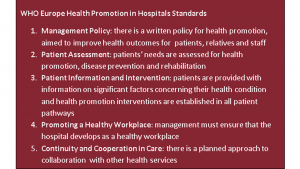
When should you visit a healthcare professional for your child? Before the age of one, you should ideally take your child to see their pediatrician. A pediatrician is a doctor who specializes in treating babies, toddlers and children with special health care needs. He or she will be able to evaluate your child’s physical and mental condition as well as look at his or her diet. He or she will be able to recommend appropriate healthcare professionals in your area who can help treat the baby or toddler’s special health problems.
However, you should also follow a few tips when you are thinking of scheduling a visit with your baby or toddler. When should you visit a healthcare professional? The best time to take your child to see a health professional is as soon as you notice that something is wrong. Even if you are not sure what the problem is, you should get a medical opinion from a doctor or healthcare professional. In fact, it is much better to err on the side of caution than to allow a disease or condition to progress and have more serious complications.
When should you call your doctor or healthcare provider if you notice something wrong with your baby or toddler? When you are taking your child to the doctor or visiting a healthcare professional, you should call right away. Some healthcare professionals arrange emergency appointments or transfers right away. Your appointment may be rescheduled or you might even be able to choose a different day that works well with your busy schedule.
When should you visit a healthcare professional for preventative care? It is never too early to start taking steps to protect your baby or toddler’s health. For example, you should consider vaccination shots for your newborn and checkup visits for your child as they grow up. You should also consider physical activities to prevent issues with your joints as they grow. The sooner you start, preventing illness and disease, the easier it will be to treat and heal once an issue surfaces.
When should you visit a healthcare professional for treatment options? When you are visiting a healthcare professional to discuss your sick child or infant, make sure you understand the type of treatment that is recommended. Some medical conditions can only be treated through medication, while others are treatable through surgery or other techniques. Before you consent to any type of treatment, you should ensure you fully understand what you can expect. If you are at risk for contracting an illness or disease, it is important to understand whether or not the disease will pass after your child is treated.
When should you visit a healthcare professional for emotional support? Many healthcare professionals attend sessions on a regular basis to discuss the emotional toll that illness and death can take on a person. If a loved one is in the hospital or home sick, a healthcare professional may suggest you take a session to let you know that everything will be OK. Emotional support is especially important when dealing with the death of a loved one, as you can learn how to cope with your own grief. If you have questions or need support, visiting a healthcare professional regularly is a good idea.


 A recent study has shown that the role of healthcare professionals in improving healthcare quality is increasingly being recognised as a key driver of improved patient care. As the UK aims to move towards more sustainable healthcare practices, professionals are recognising the need to have a broader understanding of how they can contribute to this improvement. The role of healthcare professionals is not always easily understood by patients and therefore they are often at a loss to explain their work and what they do. It is clear that this leads to confusion about how they should act and contribute to patient care.
A recent study has shown that the role of healthcare professionals in improving healthcare quality is increasingly being recognised as a key driver of improved patient care. As the UK aims to move towards more sustainable healthcare practices, professionals are recognising the need to have a broader understanding of how they can contribute to this improvement. The role of healthcare professionals is not always easily understood by patients and therefore they are often at a loss to explain their work and what they do. It is clear that this leads to confusion about how they should act and contribute to patient care.

